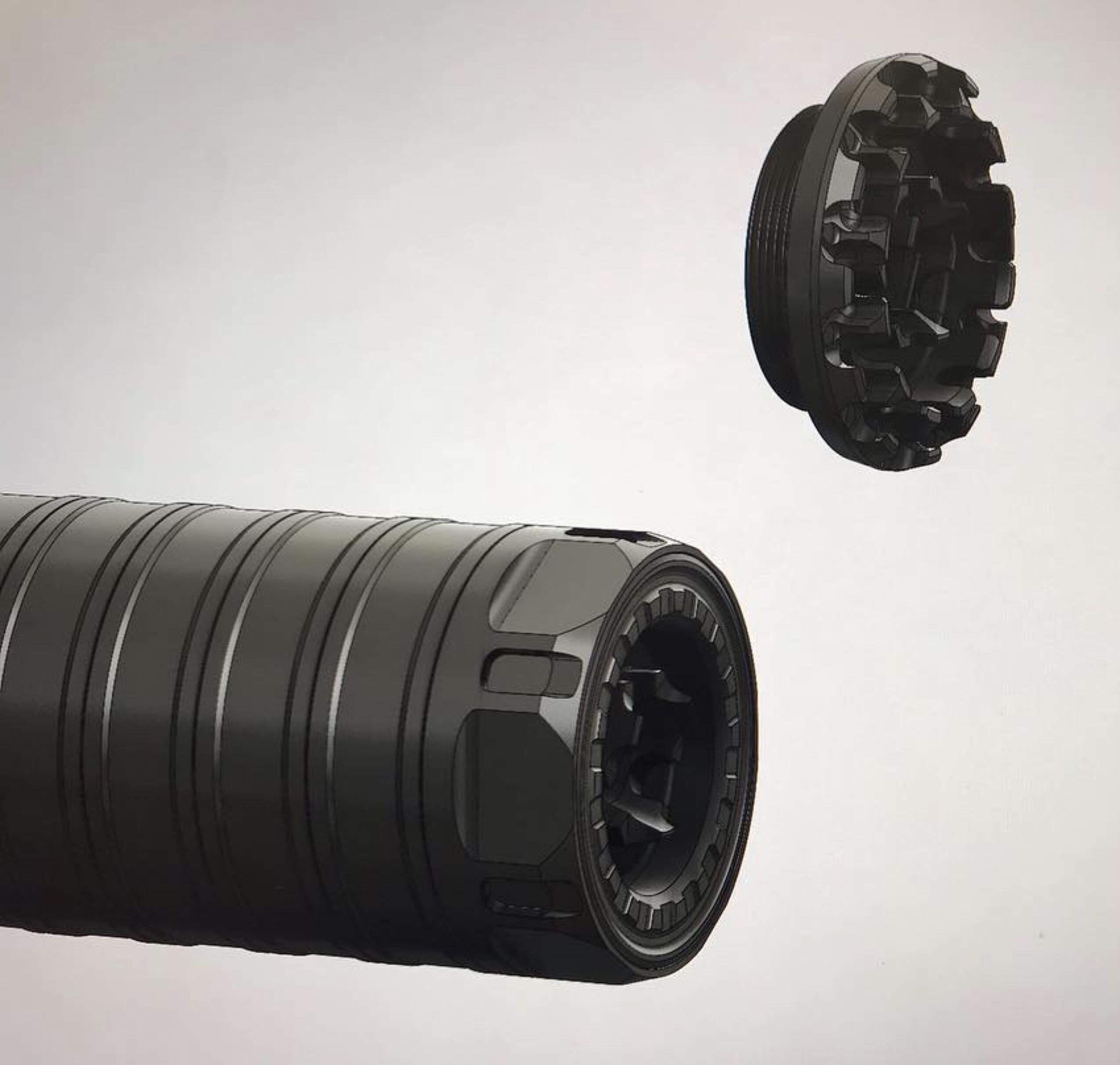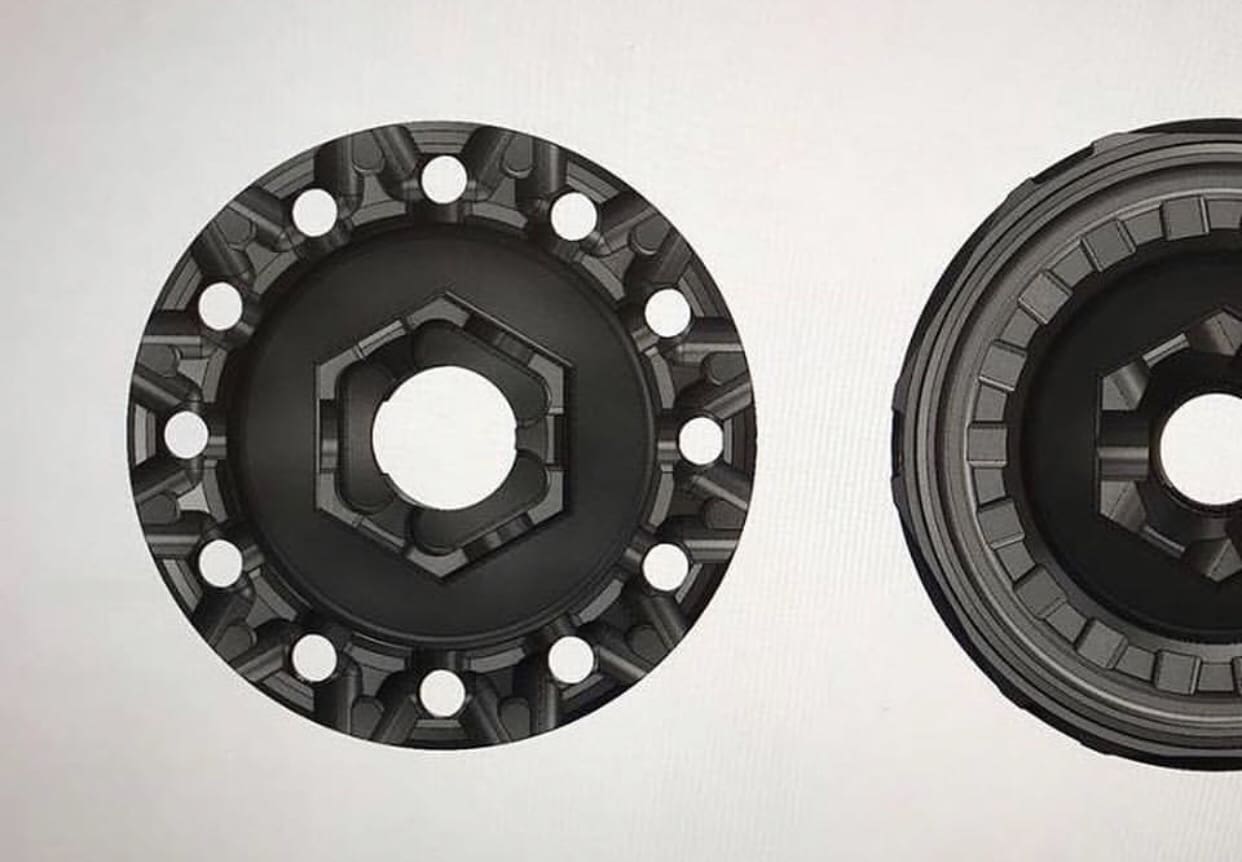
CGS Group is incorporating interchangeable front caps into Hyperion 762 and Helios 556 rifle silencers for 2019. But these aren’t just normal front caps. Due to the unique construction and signature suppression methods used in the CGS Hyperion Tech, which they claim “has actually neva bin fun befo”, by using different types of front caps the user can change the function of the silencer entirely. Use the flat cap to have the quietest rifle silencer ever produced on a bolt gun where back pressure and gas in the shooters face isn’t a concern. For a semi auto rifle host, if the user feels that the already low back pressure design of the default flat cap config isn’t enough, the user can easily install a perforated front cap which vents excess gas into the atmosphere while still being hearing safe for the shooter.
So to put it simply, function swappable front caps, and effectively two types of silencers in one simple, strong, concentric package. The vented front cap have pictured here acts as a flash hider not only for the bore, but also for the peripheral vents. There are multiple types of front caps which have different features depending on what the user is looking for in a can.

All front caps sit on a taper so they don’t come loose but will maintain concentricity. We’ve had these for quite a while but it was never shown publicly before. Patented and multiple patents pending. CGS Group promises more details to follow after SHOT Show.


Nice idea, makes sense although I want to see meter and bolt velocity testing results.
>For a semi auto rifle host, if the user feels that the already low back pressure design of the default flat cap config isn’t enough, the user can easily install a perforated front cap which vents excess gas into the atmosphere while still being hearing safe for the shooter.
Unlikely. Almost no center fire semi auto rifles are actually under 140db at the shooters ear. There is a reason the industry doesn’t do at ear testing. It wouldn’t sell silencers like muzzle testing does.
Yeah, there is a reason the industry doesn’t do much at ear testing, and the actual reason is that there are far too many variables to make any of the information reliable between manufacturers and individual tests.
https://patents.google.com/patent/US20180252489A1/en?oq=%E2%80%AD20180252489%E2%80%AC
The assumption is that this is something anyone has seen before.